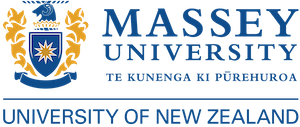

<p><img class=" alignright size-full wp-image-1813" src="http://schoolnewsnz.fastrackdev.com/wp-content/uploads/2015/09/SND19-wk4-Literacy_project-Massey_logo.png" alt="SND19-wk4-Literacy project-Massey logo" style="margin: 5px; float: right;" width="300" height="127" />A project to help all children become successful readers and writers is helping those in low decile schools get the same results as high decile schools.</p>
<p> <!--more--> </p>
<p>The &#8216;Sounds Like Fun&#8217; literacy project is being run through Shine, a Porirua education initiative. It gives teachers extra strategies and resources to help all children get off to a better start with their reading and writing. Based on a teaching resource of the same name by Porirua educationalist Joy Allcock, the project is having stunning results.</p>
<p>There are 32 schools across Porirua, Lower Hutt and North Wellington taking part in the research project and 114 Year 1 and 2 classes using the &#8216;Sounds Like Fun&#8217; approach. The research was designed by the Massey University Institute of Education, led by Professor James Chapman. Massey University recently analysed results for the first year of the trial.</p>
<p>Professor Chapman says that children in higher decile schools are generally more likely to benefit from the standard approach to literacy instruction.</p>
<p>&#8220;But we&#8217;ve known for over a decade now that too many children in low decile schools don&#8217;t benefit from this. This approach seems to widen the literacy learning gap that often shows up at school entry between children in high and low decile schools.&#8221;</p>
<p>Professor Chapman has a lot of praise for the Porirua initiative.</p>
<p>&#8220;I&#8217;m impressed with how the results are trending after just one year. It&#8217;s so good to see children in low decile schools showing such good progress. Instead of lagging behind those in higher decile schools, these children are getting very close to age-appropriate reading and spelling performance. The results are not only closing the gap between high and low decile schools but are also showing accelerated progress for Maori and Pasifika children.</p>
<p>&#8220;We&#8217;re proud of what Joy Allcock is doing. As a Masters graduate from Massey University, she really can put theory and research into practice that benefits teachers and children. More schools should be taking on board the type of literacy teaching approach that Joy has developed.&#8221;</p>
<p>Project leader Ms Allcock explains that &#8216;Sounds Like Fun&#8217; takes a different approach to literacy teaching.</p>
<p>&#8220;It uses children&#8217;s vocabulary as a starting point for literacy. We work from what children know to what they don&#8217;t know – from words to sounds to print. This is why the programme has been so successful – all children can participate no matter what their prior literacy knowledge might be.&#8221;</p>
<p>John Cody of Shine has played a pivotal role in getting this project up and running.</p>
<p>&#8220;This project came from community discussions, is led by local people, has received funding and support from charitable trusts, in particular from the Porirua Foundation, and is contributing to the Long Term Plan for Porirua city – putting children at the centre of decision making,&#8221; he says.</p>
<p>Porirua Mayor Nick Leggett says it&#8217;s exciting to see that gaps in knowledge that children may have when they start school can be closed in just one year.</p>
<p>&#8220;I&#8217;m thrilled that Porirua children are benefiting from the wonderful work Joy, James and classroom teachers are doing.</p>
<p>&#8220;It&#8217;s very relevant for Porirua. Around 40 per cent of our population is aged under-25 and a high percentage are Maori and Pasifika. This is about reducing the gap between those kids at the bottom and those at the top of the achievement scale in reading and writing &#8211; right when it counts &#8211; in their first years at school. This work should be given the highest priority by the Ministry of Education.&#8221;</p>
<p> ;</p>

EXCLUSIVE: Teachers used to be paid two to three times more than minimum wage workers,…
After an “overwhelming” vote to reject the latest Government offer, secondary school teachers will begin…
Second-language learning should be compulsory, says a new report from a forum bringing together academics,…
A new entitlement aimed to improve access to learning support coordinators for schools with students…
Educators have raised questions about the Ministry of Education’s new secondary school subjects, set to…
Professional learning and development (PLD) for teachers needs to be higher impact for teachers and…
This website uses cookies.